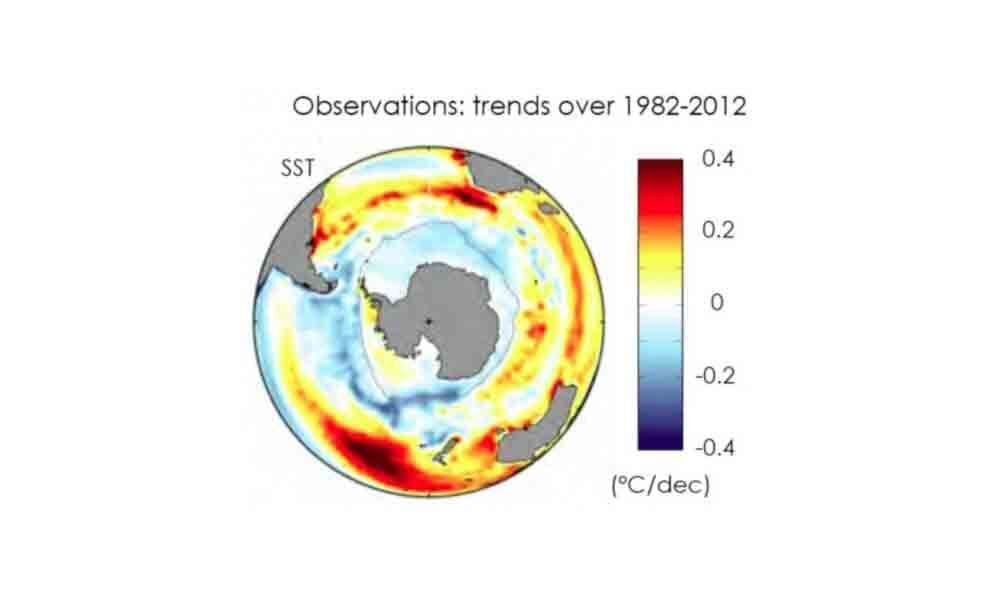Research suggests how Southern Ocean could control global climate

The Southern Ocean plays a critical role in how the carbon dioxide is taken out of the atmosphere, and knowing how it functions helps scientists understand this mechanism's role during dramatic climate transitions in the past, such as the ice ages, and better predict the current and future climate change
London (PTI): Scientists have made a new discovery challenging the previous understanding of the link between the Southern Ocean - next to Antarctica - and the atmospheric carbon dioxide levels.
The study published in the journal Science Advances shows that, contrary to existing assumptions, biological processes far out at sea are the most important factors determining how the ocean absorbs carbon dioxide. Carbon dioxide is absorbed in the surface oceans and stored in the deep seas, gradually, over a timescale of 100s to 1000s years.
The Southern Ocean plays a critical role in how the carbon dioxide is taken out of the atmosphere, and knowing how it functions helps scientists understand this mechanism's role during dramatic climate transitions in the past, such as the ice ages, and better predict the current and future climate change. Whether carbon is released into the atmosphere or trapped in the deep ocean, is crucially determined by the transformation of the water from light to dense which is in turn caused by cooling at the ocean's surface, the study says. So researchers from the University of Southampton with British Antarctic Survey, University of East Anglia and the Alfred Wegener Institute in Germany, studied the ocean circulation and carbon concentration of the Weddell Gyre - a region lying east of the Antarctic Peninsula.
The team studied data collected as part of the ANDREX project (Antarctic Deep water Rates of Export) which measured the physical, biological, and chemical properties of the waters in the gyre between 2008 and 2010. The data considered in this study showed unambiguously that, in the Weddell Gyre, the dominant process enabling the uptake of carbon dioxide from the atmosphere and its removal to the deep ocean included the role of phytoplanktons. The researchers reasoned that as phytoplankton in the centre of the gyre grow and sink, they remove carbon from the surface of the ocean, causing an uptake of carbon dioxide from the atmosphere - a process known as the 'biological carbon pump'.
From this, the team showed that the dominant factor driving the uptake of carbon from the atmosphere to the ocean was not related to dense water formation in the shallow seas close to Antarctica, but rather to biological processes further out in the sea.
"The results carry implications for our understanding of how the high-latitude Southern Ocean, close to the Antarctic continent, influences atmospheric carbon and global climate on 100 to 1000-year timescales," said Graeme MacGilchrist, who led the study for the University of Southampton. "The findings were important both for our understanding of climate transitions in the past, such as the ice ages, as well as our projections of future climate change," he said. " We also expect that it will help to shift the focus of future research towards the critical processes taking place in the Antarctic Gyres, rather than the historical focus on the shelf-sea regions," he emphasised.









